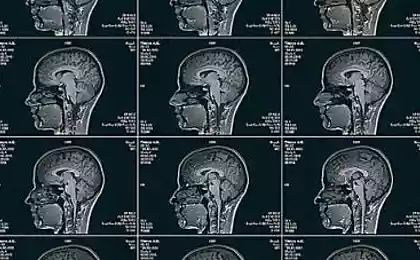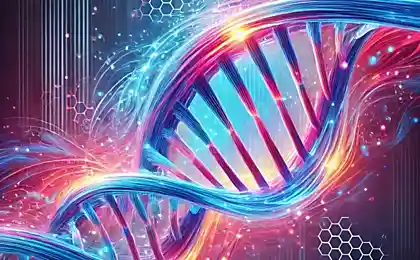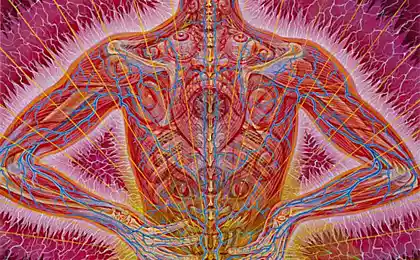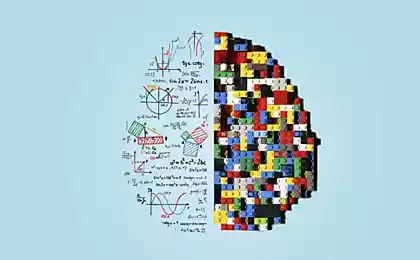464
As a gene, since it helps them to learn
Forty six million forty six thousand eight hundred sixteen
Speech gene helps to move from one stage of learning, where understanding and comprehension of the tasks to another, when the desired skill is learned to the auto state.
Language ability are provided with special neural device, and the structure of neural networks depends on genes, so it would be correct to assume that we have a special "genes". However, until 2001, scientists knew almost nothing about what genes affect it. The situation changed after the study of one family whose members suffered from speech defects, and the problems they had with not only pronunciation, but also syntax, and understanding a foreign language. It turned out that in this family the mutated FOXP2 gene, which instantly became a "star" in the scientific world.
It soon became clear that he is responsible not only for the intelligibility of speech: apparently, people have learned to speak with the FOXP2. It is, of course, found and the chimpanzee, but they differ from human in two nucleotide "letters" in DNA, probably because the mutations helped to turn animal sounds in konstruktivnoe it. In 2009 was staged an interesting experiment: human the FOXP2 gene were introduced into mice, whereupon the latter, of course, did not begin to speak in a human voice, but the sounds they uttered, were considerably more complicated. Further studies showed that mice with a human gene for speech has changed the activity of neurons in the striatum (striped or body), which, among other things, involved in the processes of learning. Moreover, with this gene have linked even the notorious female loquacity – after it turned out that the FOXP2 protein levels in girls is almost a third higher than boys. However, the details of how this gene helps us to learn it, remained largely unclear.
We have in animals, learning occurs in two stages. The first task is divided into several steps, which we gradually learn to perform. In the case of, for example, by Cycling we take up the wheel (and trying to keep it steady), then put your feet on the pedals, and then begin to rotate them. Initially, this procedure requires our full concentration, but eventually starts "unconscious" part of learning, when we learn to ride better and better, just by repeating all the above steps. The same thing happens with practicing the language: first, we focus on the pronunciation and meaning of individual words, then it acquires greater fluency, and, in the end, we can say "good day" on the machine, not thinking how and what we say.
Researchers from the Massachusetts Institute of technology (USA) decided to find out what kind of stages of learning need speech FOXP2 gene. In the experiment, normal mice and mice with the human genome had to find through the maze to get a treat. The "humanized" animal quickly knew which route it would be faster to get to the food, however, when the maze was arranged so that the stages of learning can be divided up and watch separately from each other, no difference between the mice was not.
Then came the hypothesis that the speech gene helps to switch between different phases of training. Further experiments described in the article in the Proceedings of the National Academy of Sciences, this assumption is confirmed by: mouse mastered the step-by-step stage of the task faster switched to the phase of learning by repetition, if their genome has introduced the FOXP2 human. The effect has been seen at the cellular level in the striatum at different stages of learning correspond to the different zones, and the one that was responsible for the training through repetition, in mice with a human gene to be activated more efficiently.
That is to say that the human variant of the FOXP2 gene (which was believed to be about 200 thousand years ago) have opened to our ancestors learning through repetition – not only could pronounce the word and understand its meaning, but reproducing the words became automatic. Increased possibilities of communication in the team helped to survive in the individuals, so that a new version of a gene received evolutionary advantage. However, it is unlikely that the development of speech in humans has occurred "at the behest" of only one gene. Evidently, it involves a genetic network in which the FOXP2 is just one of the links. So, a year ago researchers from the Medical school of Johns Hopkins University (USA) published an article in which he described dependent on the FOXP2 gene SRPX2 controlling the dynamics of interneuronal connections in the speech center of the brain. It should also be noted that in the described experiments with the FOXP2 gene was evaluated the ability of mice to learn in General, so probably this gene in humans may be related not only to verbal aptitude.
Cyril Stasevich
Source: nkj.ru
Speech gene helps to move from one stage of learning, where understanding and comprehension of the tasks to another, when the desired skill is learned to the auto state.
Language ability are provided with special neural device, and the structure of neural networks depends on genes, so it would be correct to assume that we have a special "genes". However, until 2001, scientists knew almost nothing about what genes affect it. The situation changed after the study of one family whose members suffered from speech defects, and the problems they had with not only pronunciation, but also syntax, and understanding a foreign language. It turned out that in this family the mutated FOXP2 gene, which instantly became a "star" in the scientific world.
It soon became clear that he is responsible not only for the intelligibility of speech: apparently, people have learned to speak with the FOXP2. It is, of course, found and the chimpanzee, but they differ from human in two nucleotide "letters" in DNA, probably because the mutations helped to turn animal sounds in konstruktivnoe it. In 2009 was staged an interesting experiment: human the FOXP2 gene were introduced into mice, whereupon the latter, of course, did not begin to speak in a human voice, but the sounds they uttered, were considerably more complicated. Further studies showed that mice with a human gene for speech has changed the activity of neurons in the striatum (striped or body), which, among other things, involved in the processes of learning. Moreover, with this gene have linked even the notorious female loquacity – after it turned out that the FOXP2 protein levels in girls is almost a third higher than boys. However, the details of how this gene helps us to learn it, remained largely unclear.
We have in animals, learning occurs in two stages. The first task is divided into several steps, which we gradually learn to perform. In the case of, for example, by Cycling we take up the wheel (and trying to keep it steady), then put your feet on the pedals, and then begin to rotate them. Initially, this procedure requires our full concentration, but eventually starts "unconscious" part of learning, when we learn to ride better and better, just by repeating all the above steps. The same thing happens with practicing the language: first, we focus on the pronunciation and meaning of individual words, then it acquires greater fluency, and, in the end, we can say "good day" on the machine, not thinking how and what we say.
Researchers from the Massachusetts Institute of technology (USA) decided to find out what kind of stages of learning need speech FOXP2 gene. In the experiment, normal mice and mice with the human genome had to find through the maze to get a treat. The "humanized" animal quickly knew which route it would be faster to get to the food, however, when the maze was arranged so that the stages of learning can be divided up and watch separately from each other, no difference between the mice was not.
Then came the hypothesis that the speech gene helps to switch between different phases of training. Further experiments described in the article in the Proceedings of the National Academy of Sciences, this assumption is confirmed by: mouse mastered the step-by-step stage of the task faster switched to the phase of learning by repetition, if their genome has introduced the FOXP2 human. The effect has been seen at the cellular level in the striatum at different stages of learning correspond to the different zones, and the one that was responsible for the training through repetition, in mice with a human gene to be activated more efficiently.
That is to say that the human variant of the FOXP2 gene (which was believed to be about 200 thousand years ago) have opened to our ancestors learning through repetition – not only could pronounce the word and understand its meaning, but reproducing the words became automatic. Increased possibilities of communication in the team helped to survive in the individuals, so that a new version of a gene received evolutionary advantage. However, it is unlikely that the development of speech in humans has occurred "at the behest" of only one gene. Evidently, it involves a genetic network in which the FOXP2 is just one of the links. So, a year ago researchers from the Medical school of Johns Hopkins University (USA) published an article in which he described dependent on the FOXP2 gene SRPX2 controlling the dynamics of interneuronal connections in the speech center of the brain. It should also be noted that in the described experiments with the FOXP2 gene was evaluated the ability of mice to learn in General, so probably this gene in humans may be related not only to verbal aptitude.
Cyril Stasevich
Source: nkj.ru
Activation of the gene AMPK in key organs and slows the aging process throughout the body
The technology of construction of country houses of straw bales and 50 days























